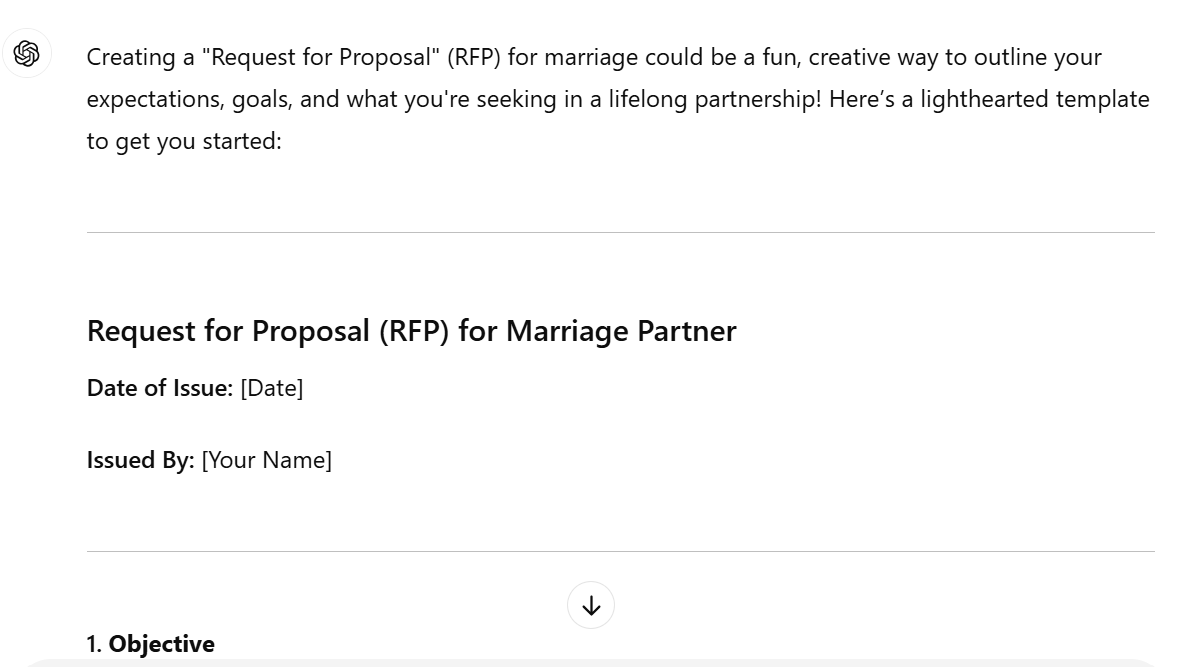You've Lost That Trusting Feeling
Trust is crucial in relationships - both personal and professional. It's critical to maintain, as once it's lost it is very difficult to regain.
It’s foundational to essentially every kind of relationship you can imagine, personal or professional. When it is present on both sides, relationships flourish and the focus and energy of them can be on productive endeavors - typically growing together (another key pillar of relationships.) That’s right, we’re talking about trust.
When the trust is gone, the toxicity of a given relationship tends to rise. The focus leaves the growth area and re-centers on second-guessing the other side, wondering if they’re doing what they said they would and - if they are - if they’re doing it correctly. As much as the above may sound like our personal relationships, they are directly 100% transferrable to our professional ones.
I’m Watching You
Something that has gained prominence in the post-Covid hybrid working model of WFH and RTO is the increase in tracking mechanisms put in place by employers to keep an eye on their worker bees. It ranges from the most mundane (building swipes in/out to ensure compliance with an arbitrary RTO mandate) to the particularly Big Brother-esque (mouse tracking, screenshot farming, etc.)
While studies show that people who know they’re being watched in some way, but who have no agency in said surveillance, perform much worse at their jobs than those without a digital watcher over their shoulder (or at least see some transparency in the process), employers continue to act as Peeping Toms on their workers. Before Covid, that number was about 30%. After Covid? Over 70% of employees are monitored in some fashion.
Outside of the real-world diminished returns on this type of surveillance, it’s simply weird and stems from a severe lack of trust. If typical management techniques like team building, coaching, and portraying a clear mission and purpose aren’t enough to foster a team environment in which management can trust juniors to get work done in a timely and quality fashion, the blame 100% lies with management.
In fact, this newsletter will go so far as to hypothesize that managers who either micromanage their team to an insane degree, or who employ the kind of invasive tracking technology that seems to be the rage of late are actually doing so from a place of insecurity - either from their concerns about their own management skills or the quiet self awareness that if they’re not being watched or micromanaged they are not being productive.
This kind of psychology is antithetical to functioning teams, which require trust as a key cornerstone to build from.
Client - Agency Trust
While internal trust is crucial to functioning corporate bodies, there is also the client services aspect of trust. The client-agency relationship is complex and multi-faceted, but if you dig deep enough into each variable of it, trust will most certainly be well-represented - if not the driving force - of almost any interaction in the relationship.
While high-trust relationships aren’t incredibly obvious in this kind of dynamic (again, these are wildly complex relationships), low-trust relationships are painfully palpable. These are the relationships where every presentation or call is peppered with questions about the justifications behind why the agency may be promoting a certain strategy or channel mix or creative concept.
And it’s not just the questions - in fact, the only thing worse than an overabundance of questions from client to agency (a potential sign of waning trust) is a pronounced absence of them (which is a sign of something even worse: apathy.)
The key lies in the manner of the questions. Are we in an iron-sharpens-iron situation, in which the questions are meant to drive increased understanding and expand perspectives on a given initiative? Or are we in a second-guessing situation in which the questions aren’t asked for expanded contextual understanding but as a competence check? The difference in delivery can be subtle, but the implications couldn’t be less nuanced.
When the Trust is Gone
What happens if you have an epiphany that your manager is overtly micromanaging your or that your client is no longer asking questions to make everyone better, but because they don’t trust you and the team to do the job for which they are paying you? And not in a one-off “Oh, my manager/client is having a bad day so they projected onto others” kind of realization, but a consistent pattern of distrust-tinged lines of questioning or managing?
You do what anyone in a relationship does - you have to regain the trust. And that means finding the root cause of it.
For managers, some of them are simply micromanagers and there will be nothing you can do to change that (other than leave, which is really the only thing you can do.) For other managers, it’s time to ask for unvarnished feedback on what you can be doing better - good managers will share this proactively, but average managers will need prompting.
When it comes to agencies and clients, there’s actually a mathematical formula that makes overcoming a pattern of mistakes very difficult to overcome. If you think of agency-client relationships like a marriage, which is not an uncommon nor unfair analogy, then we can look to psychologist John Gottman and his institute when it comes to predicting divorce between couples.
Negativity is a much stronger emotional force than positivity, to the extent that to overcome a single negative interaction requires five positive ones. Transferring that to the world of agency and client relationships, a pattern of agency mistakes requires not only a turnaround of process and accuracy, but requires five times the competency to simply get back to pre-mistake status. Adding to this uphill battle for agencies, (most) marriages don’t have a single directional monetary arrangement and scope of work attached to it (though they can be RFP’d at any time.)

So How Do I Regain That Trust?
While it’s not fair, given the five-to-one ratio of positive-to-negative interactions, you have to aim for perfection in the short term to get the lost trust back. While good managers acknowledge no on is perfect (we are humans, after all), if a relationship is salvageable and worth saving, then it requires the effort to do so.
This means rooting out the mistakes that occurred and reimagine processes to avoid them in the future. Was it a mistake due to a knowledge gap? Study up. Was it processes between departments? Sit them both down and have that come-to-Jesus moment. Was it simply careless? Add in extra time for proofreading and attention to details. If you don’t deep dive into the why of the mistake, you won’t effectively fix it via the how.
It’s cliche, but it has firm foundations in reality: when you make a mistake (as they are inevitable), it’s what you learned from it and applied from the learning that matters.
Grab Bag Sections
WTF Democrats: Many people will look at the election and say Trump won. I disagree - not in a “Storm the Capitol", “Stop the Steal,” “I don’t understand how voting works” kind of way. I simply think the bigger narrative is that the Democrats lost. [Ed.’s note: This is the final WTF about politics for this year - this author is annoyed he even feels the need to do it. Feel free to skip to album of the week if you’re sick of politics talk since the election.]
I lay out my reasons in a Substack note (figuring the dear readers of this newsletter did not want an entire post on this.) I also think Jesse Singal had excellent insights on this - if I still wrote politics this is the kind of post I would feel privileged to write.
But Democrats have a messaging problem - this is not new news, but it is just so painfully obvious when you look at the post-election analysis coming out about how shellacked they got. They don’t know how to talk to working class voters. They see the xenophobia of many of Trump’s supporters and assume that’s the sole driving force of their support for someone of that ilk. For some it is, but for others it isn’t (we can lament why Trump’s blatant xenophobia isn’t a dealbreaker for this crowd, but that’s for another time.)
Democrats need to figure out how to talk to the large part of the country that feels left behind in a mature Western economy that is fully bought into globalization, free trade, and a services-first mindset. What actual economic benefit are they offering this group? What have they done for it beyond a watered-down Obamacare? If the Democrats can’t figure out how to message the economic benefit their policies will bring to everyone - and follow up with some action - they will continue to have their lunch eaten by a craven GOP that has zero problem speaking a cheap, xenophobic language while letting the most vulnerable of their voters continue to languish economically under their policies. LBJ knew what he was talking about when it came to using racism politically (sadly, it does take one to know one.)
Album of the Week: One of the best singers to have ever met a microphone, Sam Cooke’s career was cut short in circumstances that still have not fully come to light. He had one of the best voices in music and his career had far and wide influence, from James Brown and Otis Redding to Mick Jagger and Paul McCartney.
Ain’t That Good News was Cooke’s final album before his murder, and it has one of the best songs ever put to wax on it in “A Change Is Gonna Come.” This song was one of Cooke’s most personal, and he claimed the arrangement of it came to him in a dream. It was the lead song on the second side of the album and was not released as a single until nine months after the album’s release.
In between the release of the album and the release of “A Change Is Gonna Come” as a single, Cooke was killed. He only performed the song once - on NBC’s The Tonight Show on February 7, 1964. Unfortunately, NBC lost the tape of the performance, which ended up being overshadowed by the Beatles on The Ed Sullivan Show two days later. Cooke felt the song was too eerie and confided in Bobby Womack that he was never going to play the song live again.
The other tracks on the album aren’t to be missed, but it’s hard to devote a lot of ink to them simply because they have to share space with a song that gave me goosebumps when I first watched Spike Lee’s Malcolm X (the double dolly shot of Denzel adds to the ethereal moment for this newsletter’s author.) If you don’t listen to the album, at the very least listen to Cooke’s best song.
Quote of the Week: “Trust dies but mistrust blossoms.” - Sophocles







